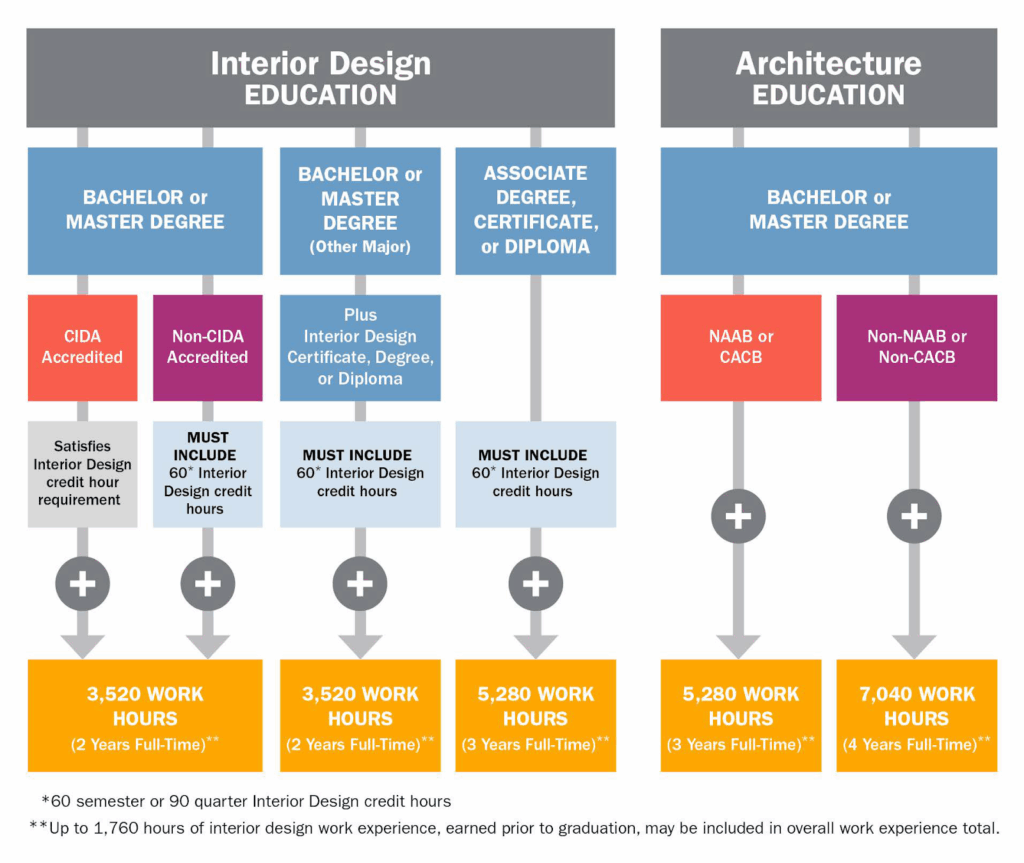NCIDQ Exam Eligibility Pathways
Check Your Eligibility

Your eligibility period—the window to schedule, take, and pass the exams—begins with the first exam administration following your application’s approval.
Applications approved Nov–Jan:
Eligibility starts with the Spring (April) exam.
Applications approved May–July:
Eligibility starts with the Fall (October) exam.

Eligibility Limits
Route 1 (IDFX, IDPX, IDIX)
Must pass all three within 10 exam administrations.
Route 2, Part 1 (IDFX only)
Must pass within 4 exam administrations.
Route 2, Part 2 (IDPX & IDIX)
Must pass within 10 exam administrations after advancing to this stage.
- Work Experience Minimums
- SAMPLE Work Experience Hours Tracking Form
- Work experience must be verified by a Direct Supervisor or Sponsor.
Check with your jurisdiction for specific licensing, registration, or certification requirements.
Studied outside the U.S./Canada? Use WES or ECE to establish equivalency. Include course titles and U.S. credit equivalency to meet CIDQ’s 60-interior design credit hour requirement.

Explore Alternative Eligibility
The Alternative Review Process (ARP) is for candidates who are unable to document the required education. Canadian and Nevada candidates should check with their regulatory agencies before applying.
How to Apply for ARP:
Option 1
- Complete regular application + pay $235 application fee at cidq.org/apply
- If some interior design education, submit Education Review Form, Course Descriptions, & Official Transcript (Follow Education Application Instructions)
- Pay $605 ARP application fee
- Wait for your education evaluation
- If gaps are identified, respond using the Dossier Review Form and supporting documentation
- Receive final decision
- If approved, you’ll be eligible to sit for the NCIDQ Exam
Option 2
- Complete regular application + pay $235 application fee at cidq.org/apply
- If no interior design education, submit Dossier Review Form and supporting documentation
(Follow Dossier Application Instructions) - Pay $605 ARP application fee
- Wait for your dossier evaluation
- Receive final decision
- If approved, you’ll be eligible to sit for the NCIDQ Exam
CANADA*
Seeking Registration
NEVADA
Seeking Licensure
STANDARD
Seeking NCIDQ Certification
* If trying to establish CIDA equivalency to be an intern interior designer through the Alberta Association of Architects (AAA), contact Cornelia Springer.